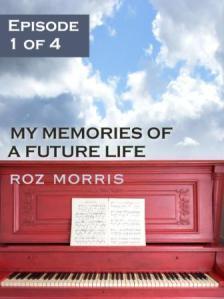Roz Morris's Blog, page 92
September 9, 2012
‘Writers and songwriters can create memorable shared works’ – The Undercover Soundtrack inside out: SJ Tucker
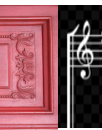 ‘The more writers and songwriters cross-pollinate and cross-promote our work, the more people will find out about us’
‘The more writers and songwriters cross-pollinate and cross-promote our work, the more people will find out about us’
This weekend I’m celebrating the anniversary of the launch of My Memories of a Future Life. And since the story explores reincarnation in reverse, I thought I’d turn the Undercover Soundtrack inside out and talk to musicians who have been inspired by novels.
Today I’m hosting SJ Tucker, who has a long-running collaboration with award-winning fantasy novelist Catherynne M Valente. Their partnership goes way beyond a song for a book trailer; Cat writes song hints into her manuscripts for Sooj to find, and they tour together with their very own multimedia song and story circus. Sooj is talking about all that – and how she turns a novel into songs – today on the Red Blog.

September 7, 2012
A whole novel into a song? The Undercover Soundtrack inside out – Beth Rudetsky
 How do you distil an entire novel into a song or a series of songs?
How do you distil an entire novel into a song or a series of songs?
This is a task of mad proportions – and a question that will resonate with any writer who is stuck in the throes of a pitch or blethering through a blurb. Or is simply trying to fathom what their own darn book is about.
This weekend I’m celebrating the anniversary of the launch of My Memories of a Future Life. And since the story explores reincarnation in reverse, I thought I’d turn the Undercover Soundtrack inside out. I’m inviting two musicians whose work has featured on book trailers in past posts to share how they pack an entire novel into a teensy song.
So today, please welcome composer-singer Beth Rudetsky on the Red Blog who’ll be talking about writing a song for Zoe Sharp’s thriller Fifth Victim

Serialising my novel… what to do when the show is over
 More indie authors than ever are interested in serialising their fiction on Kindle and it’s one of the topics I’m most frequently emailed about. (And with Amazon’s announcement of Kindle Serials, I guess the trend is going to continue! More on that below…)
More indie authors than ever are interested in serialising their fiction on Kindle and it’s one of the topics I’m most frequently emailed about. (And with Amazon’s announcement of Kindle Serials, I guess the trend is going to continue! More on that below…)
At the time I serialised my novel I wrote about it on Jane Friedman’s blog and Tuesday Serial. But these questions from Michael Stutz, who serialised his literary novel Circuits of the Wind: A Legend of the Net Age, highlight points I haven’t covered before – what to do once you’ve released the final episode.
Michael: Like you, I’m a longtime legacy author who is now experimenting with indie, publishing a 700 -page literary novel in episodes. A lot of what you wrote in your guest post at Jane Friedman’s blog is things that I’m either going through now or discovered the hard way.
Have you found your complete version sells more than the individual episodes?
Yes, definitely. Get your complete edition out as soon as you can. For many reasons -
it’s easier to link to just that one, so that’s the link you want to spread around
it’s more convenient on the Kindle – four episodes clog up the screen and look confusing (which I was blissfully unaware of when I hatched my serialisation plan)
you want to start gathering reviews and it’s best if they go on the full version
Although serialisation was exciting as a launch pad, I’m not sure that readers appreciated being interrupted mid-stream. Some told me they wouldn’t buy until the final episode was up. Others told me they’d knocked stars off their reviews for the inconvenience of waiting (this seems irrelevant when a review will be read in several months’ time, but it just goes to show you don’t want to annoy a reader). I released my complete edition as quickly as I could to grab the interested readers before they decided I was making life too difficult for them.
 Michael: Should I retire the individual episodes?
Michael: Should I retire the individual episodes?
I wondered about this. But I decided to keep them because:
People are still finding them. I don’t know how, as I long ago stopped giving out those links, but they must be simmering on distant posts far away. Episode 1 sells the most copies – which possibly demonstrates how much the links were shared because serialising was a story in itself. But I also get surprise sales for the other episodes, so some people might be completing the novel extremely slowly!
The episodes give me more visibility in the Amazon store – 5 entries for the Kindle book instead of just 1 makes it look more substantial (or annoying, see left… no idea what that camera is doing in a search for My Memories of a Future Life…)
Episodes are a good way to use KDP Select lending. When KDP Select launched, I wasn’t keen on enrolling the whole novel or my writing book for lending or free promotion. But offering just the first episode is a terrific calling card – both in the lending library and sometimes also free. So because episode 1 is on KDP Select, I have to keep the other parts available for sale.
Michael: What about the Amazon customer reviews – did you have to start with zero again for the complete version, and wait for new reviews?
Amazon understood that the complete book had the same content as the episodes, but regards them as different publications and won’t transfer the reviews. That seems entirely fair to me – but it does mean that you launch the full book with a worryingly naked star rating. The sooner you do it, the sooner those early adopters will review where it helps you most. (And I found they didn’t mind being nudged in the right direction…)
So while it’s frustrating to have reviews that don’t count on the book’s most visible page, browsers still see that when the book was serialised it had good feedback – which all helps to demonstrate a buzz about the series.
STOP PRESS – just as I put this post to bed, Amazon announced the Kindle Serials Programme. If you are chosen for it, it looks as though this takes a lot of the faff out of it. A community gathers around the book, allowing discussion with other readers – and I guess this might collate reviews together too. You don’t have to organise separate launches (as I did, which was time-consuming) and it seems much easier for readers to keep track of the episodes on the Kindle because they’re updated automatically. This means there probably wouldn’t be any need to release a separate complete Kindle version as readers who found it afterwards would get all the episodes in one go. (Perhaps we early serialisers paved the way for them….) You do have to pitch your idea though – which means you can’t just opt in like KDP Select – and we don’t know what their gatekeeping criteria are.
If you’re thinking about serialising, whether it’s the old way or this brand new one, make sure your novel is in good shape for it. Chopping it into parts is a rigorous workout for your novel’s structure – especially if you didn’t originally write it with serialising in mind. This post might help:
Can You Split Your Novel Into Four Equal Parts?
Thanks for the main pic Ralph and Jenny
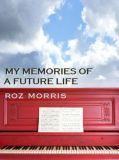 This weekend is my novel’s first anniversary (give or take an episode or two). So my blogging schedule is being turned upside down (which is why you’ve got a post today) to make room for something a little unusual and creative. I hope you’ll like it. There will also be a competition with a special prize (top secret at the moment). To make sure you don’t miss it, subscribe to my blog (somewhere in the sidebar) or sign up to my newsletter (somewhere in the sidebar and also here). See you at the party
This weekend is my novel’s first anniversary (give or take an episode or two). So my blogging schedule is being turned upside down (which is why you’ve got a post today) to make room for something a little unusual and creative. I hope you’ll like it. There will also be a competition with a special prize (top secret at the moment). To make sure you don’t miss it, subscribe to my blog (somewhere in the sidebar) or sign up to my newsletter (somewhere in the sidebar and also here). See you at the party

September 5, 2012
‘Vastly yearning, longing for resolution’ – The Undercover Soundtrack, GG Vandagriff
 It’s pure coincidence that my guest this week is showcasing a novel that features reincarnation and a musician – but I guess that means she’ll be right at home on The Undercover Soundtrack. Her novel Pieces of Paris was inspired by Tchaikovsky’s Violin Concerto in D Major, which gave her her haunted main character. Music underpins her other books too, regardless of genre, because this award-winning writer has chalked up romances, historical epics, women’s fiction, non-fiction and journalism. She is GG Vandagriff and she’s on the Red Blog today.
It’s pure coincidence that my guest this week is showcasing a novel that features reincarnation and a musician – but I guess that means she’ll be right at home on The Undercover Soundtrack. Her novel Pieces of Paris was inspired by Tchaikovsky’s Violin Concerto in D Major, which gave her her haunted main character. Music underpins her other books too, regardless of genre, because this award-winning writer has chalked up romances, historical epics, women’s fiction, non-fiction and journalism. She is GG Vandagriff and she’s on the Red Blog today.
It’s a year since I launched My Memories of a Future Life and I’m planning a very special giveaway (top secret at the moment). To make sure you don’t miss it, subscribe to my blog (somewhere in the sidebar) or sign up to my newsletter (somewhere in the sidebar and also here)

September 2, 2012
7 tips for keeping your motivation as a writer
 I’ve had an interesting email from Zoe that sums up some typical challenges of the writerly life:
I’ve had an interesting email from Zoe that sums up some typical challenges of the writerly life:
I started writing two years ago. I’m bored with my story. I have outlined every scene and character and I know how it will go; but I find while I am writing that I change it completely and like that better. Do I stick to my outline?
1. Outlining to flatlining
Outlining is essential. Very few writers can make up a whole novel on the spot as they’re typing. Even if they don’t plan in writing, they’ve usually done a lot of preparation in their heads.
We all have a greater or lesser need for a formal plan. You may be discovering that if you outline exhaustively you kill the idea. In that case, don’t write a detailed synopsis, just put a few notes on cards and set sail (more on outlining methods in Nail Your Novel). Or you may be discovering that detailed outlines free you to take turns you wouldn’t otherwise have seen.
2. Have you let the book rest?
Are you changing stuff because you’re stale, or because you’re having better ideas? We all get to the stage where it’s impossible to tell. Change if you’re improving the book, but not for its own sake because you’re no longer entertained.
Sometimes working on a novel is like hearing the same joke over and over. We need a break before we can tell if it’s funny.
3. Is this your learner novel?
You mention you’ve been writing for two years. Is that on this same book? Most of us start writing because we’ve had an idea and we hurl ourselves in. A few years later, that novel has had a lot of pummelling as we learn what to do.
Sometimes we should let that learner novel go.
We might grow out of it, but cling on because we like the familiarity, or we refuse to be beaten by it, or we worry we won’t get another idea.
Some learner novel ideas are so ambitious we won’t have the wisdom to write them for many years.
On the other hand, some learner novels turn out just fine.
Again, the best cure is to let it rest.
Don’t be afraid to take the book in new directions if the muse suggests them. Novels evolve all the time – as you understand the characters more, fill logic holes, make new discoveries in research or fix things you’ve fudged. These realisations make your book stronger and you shouldn’t try to force the book back on track.
But I find that if I go totally off piste I can get in a fearful muddle. So if I need a new direction I stop and work out the consequences. Redraw the map and continue.
5. Get your enthusiasm back
When you take a break, give your book the best chance to win you back. Read some novels that are like it, to remember why you love that kind of story.
Do you still have the very first notes you made? It’s always worth keeping notes from the honeymoon period. Dig them out and find what got you excited in the first place.
Zoe also asked:
What do you do when you get writer’s block and don’t feel like reading over what you have written?
If I’m blocked it’s because there’s a problem I haven’t diagnosed. Like you, I don’t want to open the file. But this reluctance is my brain’s way of telling me I’m sending my story in a direction I don’t like. So I figure out what that is and find ways to change it. Once I have, I’m happy to continue again.
7. Confidence
Zoe’s final question was this:
Do you ever feel like no one will like your work?
What do we mean by ‘like’? Do we mean ‘where’s the market’? Will agents, publishers, readers in their millions like our work?
We can’t write with fashions in mind because they’ll have changed the next time it rains. We can only write the books that would satisfy us as readers.
There’s another question here – will you like your own book?
All the creatives I know – artists, animators, game designers, musicians, choreographers – worry that we are creating rubbish. We’re hoping we can fix it before anyone finds out. I look at my finished novels and cannot imagine what super-brain made them so coherent – because now I’m on a new idea (The Venice Novel) I’m splashing blind.
Our sense of perfection can paralyse us. But it’s also the spur that makes us raise our game. So like most things in writing, polish the book until you’re satisfied, have a rest and repeat. When you can’t go further, find beta readers, polish until they’re satisfied… approach an agent or an editor… and spread out wider and wider until you have a comfortable majority who agree it’s good to go.
For more on outlining and editing methods, see Nail Your Novel: Why Writers Abandon Books And How You Can Draft, Fix and Finish With Confidence
It’s a year since I launched My Memories of a Future Life and I’m planning a very special giveaway. To make sure you don’t miss it, subscribe to my blog (somewhere in the sidebar) or sign up to my newsletter (somewhere in the sidebar and also here)
What saps your motivation as a writer? How do you beat it? Share in the comments!


August 30, 2012
From last resort to new career – how I self-published and how it’s changed my outlook as a writer: speech for the Society of Young Publishers, Oxford
This week I was invited to give a talk on my self-publishing adventures to the Society of Young Publishers in Oxford. Inevitably they also got a few opinions (at the end) on how I now see my role as a writer 
I’ve since had requests to publish it here, so…. here goes.

 I wasn’t new to publishing when I self-published. More than two decades ago my first job was in the editorial office of a small publisher where I handled every kind of non-fiction title – books, directories, partworks, magazines, a newspaper – and even, once, a novel. From there I moved to magazine editing. In parallel I developed a career as a writer – I’ve ghosted 11 novels and 8 of them have been bestsellers. I also mentor other writers – originally for a literary consultancy and now freelance.
I wasn’t new to publishing when I self-published. More than two decades ago my first job was in the editorial office of a small publisher where I handled every kind of non-fiction title – books, directories, partworks, magazines, a newspaper – and even, once, a novel. From there I moved to magazine editing. In parallel I developed a career as a writer – I’ve ghosted 11 novels and 8 of them have been bestsellers. I also mentor other writers – originally for a literary consultancy and now freelance.
I’m fully armed with literary agents – two of them, actually. In spite of this, I ended up self-publishing. Here’s the story.
I self-publish a writing book
Nail Your Novel: Why Writers Abandon Books And How You Can Draft, Fix and Finish With Confidence was the book I published first. I wrote it as a natural extension of the writing blog I’d just started. It’s my writing process distilled into 10 steps – how to take an idea, flesh it out, draft it and revise it thoroughly.  It’s 40,000 words, which proved too dinky for the market. But that was deliberate. I knew from the online community that writers wanted a book that wouldn’t snaffle their precious writing time but told them only what they needed.
It’s 40,000 words, which proved too dinky for the market. But that was deliberate. I knew from the online community that writers wanted a book that wouldn’t snaffle their precious writing time but told them only what they needed.
No one would publish it, so I thought it had better not sit around. I set it up on Lulu – the most straightforward print platform at the time – and told my blog and Twitter followers. I also gave away free PDFs. This was three years ago, so the giveaway packed a punch. NYN got good reviews, sold about 20 print copies a month and became quite widely known – at any rate, strangers would email me telling me how useful it was.
So NYN ticked over on Lulu as a nice accessory to my blog, but I still wanted a deal for my fiction. It wasn’t respectable to self-publish fiction – especially if you’d secured an agent.
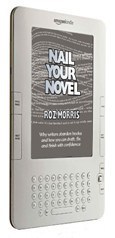 I am forced into the Kindle age
I am forced into the Kindle age
Most people self-pub with ebooks first, especially now. I didn’t. Three years ago when I brought out NYN I’d never seen an ebook. I had a house full of print. I’d worked with print and I wasn’t convinced that making an ebook was worth the fuss.
No doubt this reasoning has been repeated in publishers up and down the land.
I was even getting requests for a Kindle NYN but it took a catastrophe to boot me over. One day Lulu deleted a bunch of Amazon listings and then bickered with Amazon – and its authors – about whose fault this was. My book, which was generating a buzz, vanished from sale for several weeks – and so did my reviews. The links from bloggers who’d written about it went to dead ends.
Clearly I had to find out about sales avenues, instead of just being a writer. I read my most trusted bloggers, filled a few information gaps, formatted NYN and wrote a how-I-did-it post for my readers.
Woot, I’d launched an ebook. I say launch, but that ‘how-to’ post, a Facebook event and a few tweets was the only launch I did.
Again, I was thinking with my writer head. I had no idea how books should be introduced to the market. When I worked for the small publisher, the marketing manager handled it. When ghostwriting, I was never the focus – the celebrity authors had an army organising bus stop posters and appearances on Breakfast TV.
But, probably only by the grace of bloggers, my tiny launch sold five times as many copies in one month as I’d sold in print. There must have been quite a few people waiting for a Kindle NYN because it spent a long time in the Kindle top 10 for books on writing and it’s still in the top 50.
Thank goodness I eventually listened to my readers. (It’s now also on Kobo and Smashwords.)
I revamped the print edition and put it on Amazon’s CreateSpace (because I’d got fed up of middlemen). NYN immediately got offered on a 4 for the price of 3 deal and is always on a bundle deal of some sort. Now it’s catching up with e-sales.
Does blogging and social media sell books? Yes, but I did it by accident
So, I had a book out but my goodness I needed to learn more about promotion. Off to my bloggers again. It turned out my blog got top marks for being a good platform -
I stuck to a subject I could blog about until the end of the world
I could demonstrate with my background that I knew what I was talking about
my posts were useful and accessible
I was happy to answer commenters and develop posts into a conversation.
All of this I did entirely by accident. The tight focus on writing came from my background in magazines – where you give readers useful advice and don’t dilute your value with off-topic material. The rest happened because I was having fun.
I was relieved to find I didn’t have to do a hard sell – because I’d seen some pretty grotesque campaigns around Twitter and Facebook.
As with blogging, social media marketing seems to work by a gentlemanly process of relationships – people get to know you, enjoy your company in an interview or a blog post. It’s the way books have always sold on in traditional publishing – by generating curiosity so that one day the reader stops and picks up the book. It is, to quote one of my guru bloggers Joanna Penn, hand-selling on a global scale.
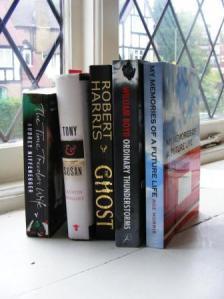 The unthinkable – I self-publish my novel
The unthinkable – I self-publish my novel
By mid-2011, NYN was doing well. My agent had given up trying to sell my own novel. The typical feedback was: ‘we really enjoyed it but it’s too unconventional’.
Meanwhile, in traditional publishing, a number of novelists were daring the unthinkable – they were going indie. They were writing articles explaining why, many describing exactly my predicament – too unusual for the market.
I decided it was time to publish My Memories of a Future Life. I put it through a rigorous round of edits and got an editor friend to scourge it as well, and it was ready to go.
The promotion problem
Publishing my novel was very liberating, but how would I launch it? People who wanted writing advice wouldn’t necessarily like my fiction. I couldn’t change my blog into a hybrid of writing advice and marketing for my novel – that would annoy the readership I’d built up.
I told my readers what I was doing, created another blog for the novel and a breakaway twitter ID dedicated to the kind of fiction and ideas that interest me.
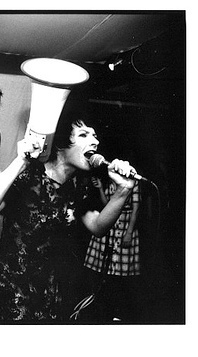 That took care of its online home, but where should I promote it? So far I’d learned how to sell a book that was helpful to people – which was easy and unembarrassing. But a novel isn’t helpful and nobody needs it. All I could do was try to drum up curiosity. But where?
That took care of its online home, but where should I promote it? So far I’d learned how to sell a book that was helpful to people – which was easy and unembarrassing. But a novel isn’t helpful and nobody needs it. All I could do was try to drum up curiosity. But where?
All the advice I’d found was about marketing genre fiction – where you create a buzz on forums, Goodreads groups and books blogs. But my novel is contemporary fiction with literary sensibilities. Its tag line is ‘what if your life was somebody’s past’, so it seems to be a reincarnation story, but is no more about reincarnation than We Need To Talk About Kevin is about a crime. Publishers said it was too much like a thriller for literary readers and too psychological and poetic for thriller readers. And the narrator isn’t regressing to a past life, but looking to an incarnation in the future – so that might add a label of speculative fiction – or not, depending on your take on the story.
I began to see why publishers passed in favour of something easier.
(You might be wondering if such a duck-billed platypus of a novel would ever work, but it’s got a respectable clutch of high-starred reviews, none of them paid for and none of them calling in favours.)
Some writers hire publicists but that wasn’t an option for me:
I wouldn’t know how to assess whether a publicist was any good
I didn’t know anyone else who’d marketed an equivalent book so couldn’t use them as a template or find suitable publicists through them
I didn’t have any budget anyway.
I weighed up my novel’s biggest asset – a thought-provoking distinctive idea – split the book into four parts and released it as a Kindle serial over four weeks. Then I followed with the complete novel on Kindle and in print.
I called each instalment an ‘episode’ to echo the freshness of serials like Lost and also to suggest how to approach it – as a modern, multi-level thought-provoking story.
This meant I was handling an exhausting 4 launches instead of one – but it created an event, and people around Twitter, blogs and Facebook helped to build the anticipation – and even wrote reviews for the individual episodes.
My lovely readers
Here I found I’d underestimated my lovely followers – they were curious to see, at long last, the kind of novel I’d written. Also, subscriptions to my blog doubled – suggesting I’d passed some kind of test. Perhaps I’d proved, after all this talk, that I also walked the walk.
I was careful never to abuse this generosity. I wrote posts about the novel on my main blog only if they were useful to writers. For instance, I discovered that splitting the novel in four was an excellent way to test the story structure. I also wrote about how to produce a print edition and another post about how to write back cover copy – with examples of my laughably rotten versions.
Another accident – the novel’s blog gets a new life
Once the releases were out, I was going to leave the novel’s blog as a static site. Then I wrote a post called The Undercover Soundtrack – about how I used music as inspiration to create characters and crucial story developments. It fitted nicely as the novel is about a musician.
I suddenly thought I’d like other authors to tackle this, rather like Desert Island Discs, so I turned it into a series. It’s building a following from readers who like the concept and it also allows me to showcase other authors – karmic payback for all the advice and support they’ve given me.
I now get emails from publishers and publicists asking if their authors can take part – which is nice for a site that started as a way to launch a self-published novel (and by the way, you’re welcome to email me too). The boundaries are blurring.
My changed outlook
So I became a self-publisher by necessity. It wasn’t initially as a positive choice, just the only way to get my work to an audience who were increasingly curious about it. But my experiences and the recent shifts in the industry have changed the way I think about my role as a writer.
In my conventional publishing experiences, the author is a cog and a lot of decisions are left to others: blurbs, covers, style questions – sometimes even editorial direction. The book becomes the ‘property’ of the publishing team. Now, though, I’m used to being in charge.
 Message 1 for publishers – the new breed of author
Message 1 for publishers – the new breed of author
The genie’s out of the bottle. Authors are learning what’s possible and that they can have far more control. And that’s before we even think about royalties, especially with ebooks.
But before you worry this will become a strident call to arms, let me say this – the ‘empowerment’ of writers works both ways. Level-headed, professional authors are also learning what we want help with.
 To take me as an example: I’m writing NYN 2 and I’ll self-publish because I have the resources to do a good job and to find readers. (Indeed I’ve had 5 small-press offers to republish book 1, but I didn’t need editorial services and they didn’t have a wider reach into relevant markets). So I can write, produce and sell books on writing.
To take me as an example: I’m writing NYN 2 and I’ll self-publish because I have the resources to do a good job and to find readers. (Indeed I’ve had 5 small-press offers to republish book 1, but I didn’t need editorial services and they didn’t have a wider reach into relevant markets). So I can write, produce and sell books on writing.
But that’s non-fiction.
With my fiction, I can take editorial charge, I can find a compatible developmental editor – but I’d be just as happy to build a relationship with an editor in a publishing house. Also, I need help to find an audience. My novel does pick up new fans, but I have to work non-stop to get it to new readers and I’m doing it very inefficiently because I’m guessing. And I certainly can’t get the notice of influential reviewers.
Writers will weigh up these options, and savvy publishers could too. Some writers can lead the process and produce top-notch books. Others will gladly leave many jobs to the publisher. For every writer that equation will be different. Probably for every book it will be different.
To take an example – my husband, Dave Morris, recently had a critically acclaimed hit with an interactive app of Frankenstein. He’s a game designer as well as a writer and could have programmed the app himself and put it in the app store, but he preferred to partner with a publisher. He found a home for it with Profile Books – which gave Frankenstein a prestigious launch.
Message 2 for publishers – don’t throw away your competitive advantage
One of the problems is that marketing strategies are steering editorial decisions. I know Big Six editors who don’t read submissions from unknowns and instead trawl the indie bestsellers on Amazon. My own agent tells me he’s had plenty of phenomenal novels from first-time writers that reached the editorial board and were rejected because they didn’t fit with what sells.
 Obviously there’s no simple answer, but this pressure is squeezing out the original, unusual books written by people who dared to be different, the game-changing novels that will be the classics of the future.
Obviously there’s no simple answer, but this pressure is squeezing out the original, unusual books written by people who dared to be different, the game-changing novels that will be the classics of the future.
This is bad for our art form. It’s bad for everyone who likes a good read. It’s ghettoising our next generation of original writers, who 10 years ago would have had a chance to build a career.
It’s especially worrying when you consider that a lot of self-publishing bestsellers are not the most original work but derived from what’s already successful. So if publishers copy the copies, where does everyone end up?
Publishers need to take a longer-term view. They need to have confidence in innovation.
Innovation is where the big hits arise. Harry Potter and Twilight weren’t like anything that was already successful. The competitive advantage of publishers is their experienced editors who can take a nurturing view.
There can’t be a publisher – or indeed an agent – who doesn’t have a stack of outstanding manuscripts they couldn’t get commercial backing for. I’ve suggested before that agents should help them self-publish under a special imprint, but it’s not what they’re geared up for. But publishers are.
Publishers should start ‘Discovery’ imprints on print-on-demand and ebook, perhaps produced as a flexible partnership with the author but released under the publisher’s banner. They should showcase a handful of titles every few months that they passionately believe in. The major reviewers would take notice, because the titles would come with the seal of approval of an editorial department. Those authors are going to self-publish anyway, so why not get involved?
This partnership approach is where the real publishing industry of the future will be formed.
Thanks for the umbrellas pic Philip Morton, the author in the arch pic marinalwang, the megaphone pic Neate photos, the launch pic beerandnoodles, the Oxford pic GlobeTrotteur
The session ended with Q&A … so who wants to start…?


August 29, 2012
‘Perfectly dark, tortured, and ever so slightly angry’ – The Undercover Soundtrack, Keira Michelle Telford
 My guest this week says all her major characters have their own theme song. For the first novel in her post-apocalyptic romance series she drew inspiration from the queen of Victoriandustrial music Emilie Autumn – and if that flavour of music is new to you (it was to me) here’s a crash course. The novel is Silver: Acheron, the author is Keira Michelle Telford and she’s on the Red Blog talking about her Undercover Soundtrack. Corsets and stripey stockings are optional.
My guest this week says all her major characters have their own theme song. For the first novel in her post-apocalyptic romance series she drew inspiration from the queen of Victoriandustrial music Emilie Autumn – and if that flavour of music is new to you (it was to me) here’s a crash course. The novel is Silver: Acheron, the author is Keira Michelle Telford and she’s on the Red Blog talking about her Undercover Soundtrack. Corsets and stripey stockings are optional.

August 26, 2012
Never begin your story with weather – a writing taboo examined
 Never begin your story with weather. This we hear for many good reasons. For example, Joe Konrath, who is spitting bolts of lightning after judging a story competition.
Never begin your story with weather. This we hear for many good reasons. For example, Joe Konrath, who is spitting bolts of lightning after judging a story competition.
So I started reading The Rapture by Liz Jensen, and she begins thus:
That summer, the summer all the rules began to change, June seemed to last for a thousand years. The temperatures were merciless: thirty-eight, thirty-nine, then forty in the shade. It was heat to die in, to go nuts in, or to spawn. Old folk collapsed, dogs were cooked alive in cars, lovers couldn’t keep their hands off each other. The sky pressed down like a furnace lid, shrinking the subsoil, cracking concrete, killing shrubs from the roots up…’
It’s weather. Or is it? I rather liked it, so why does she get away with it?
1 It’s interesting
Weather is usually not interesting. Most of the time in real life, weather is a conversational gambit used by those who wish they had something better to talk about. It’s throat clearing. It’s asking for permission for a conversation. It’s perhaps a plea for the other person to think of something less dull to talk about. In writing, it’s often a hesitant moment as the writer wonders exactly how to introduce everything. ‘Er, there was a blue sky…’
 But here, Liz Jensen has made extraordinary weather. It’s hardly even weather, in fact – it’s a dangerous setting, a war with the environment that makes living perilous. It skews the familiar – like that off-kilter opening from George Orwell’s Nineteen Eighty-Four:
But here, Liz Jensen has made extraordinary weather. It’s hardly even weather, in fact – it’s a dangerous setting, a war with the environment that makes living perilous. It skews the familiar – like that off-kilter opening from George Orwell’s Nineteen Eighty-Four:
It was a bright cold day in April, and the clocks were striking thirteen.
2 It’s about people
We’re more curious about people than we are about things. Which would you rather hear – a story about a chair or a story about the people whose attic it ended up in?
In The Rapture, Liz Jensen makes her opening paragraph about the people and how their lives have been changed. Where normality is disrupted, a story is bound to happen. (In fact, this excerpt has a double dose of people because it turns out to be first person – but that’s not apparent here.)
3 A storyteller is luring us in
Opening paragraphs aren’t just about the events. Like the opening bars of a song, they’re an introduction to the writer’s voice. Liz Jensen’s piece is assured, phrased with pizzaz, visualised with an eye for the interesting. It persuades you to lie back and be charmed.
The writing world is full of rules and taboos and it’s easy to take them too literally. Beginning a story with weather isn’t the problem. Neither is looking in a mirror, describing a character, waking up or getting dressed. The problem is failing to be interesting, failing to show us characters, failing to convey a state of unease or instability and failing to cast a spell over the reader.
Thanks for the pic Larry Johnson
What else makes a good beginning? Let’s discuss examples… especially if they involve some of the traditional taboos


August 22, 2012
‘Two styles of music made the characters of the two lovers’ – The Undercover Soundtrack, Jessica Thompson
 My guest this week has always been a singer, but says she only recently realised how much of her novel This Is A Love Story was inspired by music. An unforgettable gig became the novel’s most forceful romantic scene. Two styles of music – with very different attitudes – coalesced to form the characters of the two lovers. She is Jessica Thompson and she’s on the Red Blog talking about her Undercover Soundtrack.
My guest this week has always been a singer, but says she only recently realised how much of her novel This Is A Love Story was inspired by music. An unforgettable gig became the novel’s most forceful romantic scene. Two styles of music – with very different attitudes – coalesced to form the characters of the two lovers. She is Jessica Thompson and she’s on the Red Blog talking about her Undercover Soundtrack.


August 21, 2012
Our friends electric – writing bloggers rock! My post at AE
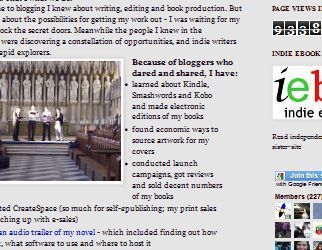 Are you fed up with established, old-school-published writers complaining about self-publishing bloggers in the national press? I think it’s time we celebrated the well-informed, curious, generous, adventurous, innovative, pioneering, rule-busting community we’ve built with all our blogs, websites, podcasts, Facebook groups etc. If you think so too, come over to Authors Electric, where I’m posting today, and say ‘aye’.
Are you fed up with established, old-school-published writers complaining about self-publishing bloggers in the national press? I think it’s time we celebrated the well-informed, curious, generous, adventurous, innovative, pioneering, rule-busting community we’ve built with all our blogs, websites, podcasts, Facebook groups etc. If you think so too, come over to Authors Electric, where I’m posting today, and say ‘aye’.
(Or if that’s a click too far, say it here  )
)






